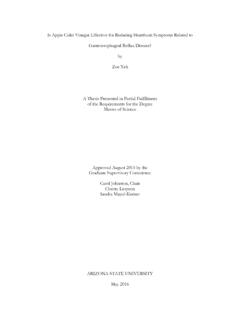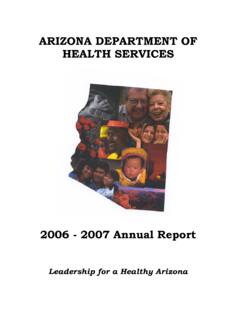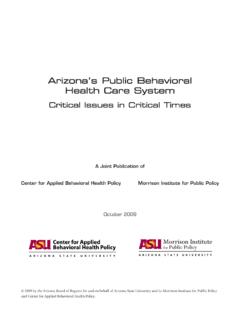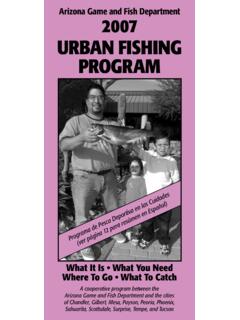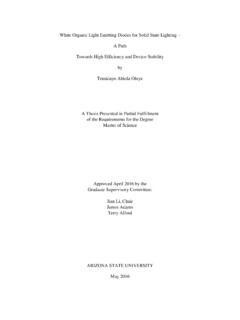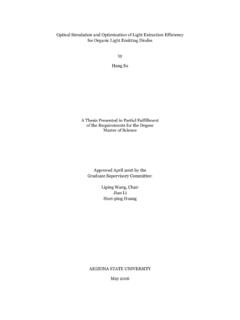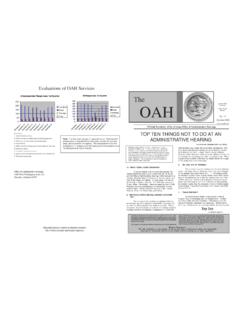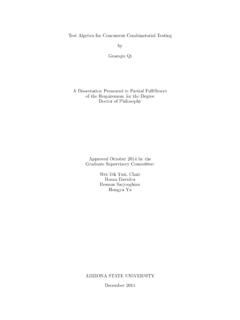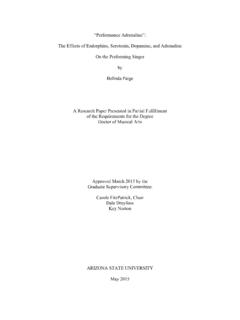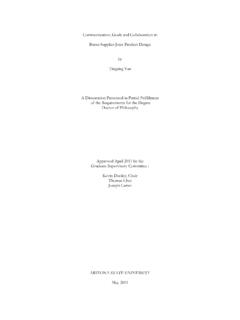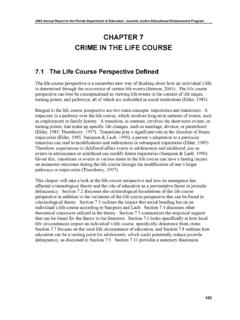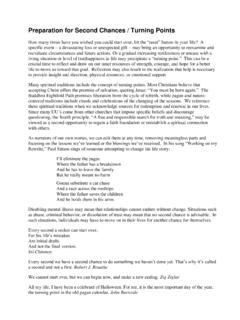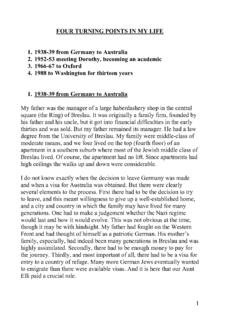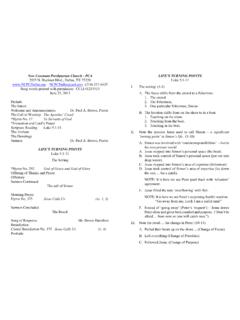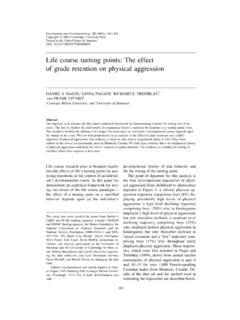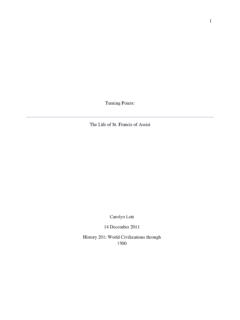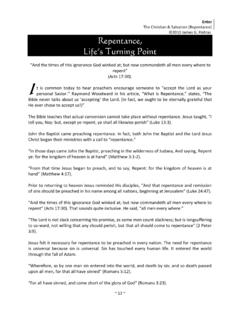Transcription of Dialogue as a Way of Life: Moral Turning Points in ...
1 Dialogue as a Way of life : Moral Turning Points in emerging adulthood by Joshua Danaher A Thesis Presented in Partial Fulfillment of the Requirements for the Degree Master of Arts ARIZONA STATE UNIVERSITY December 2010 Dialogue as a Way of life : Moral Turning Points in emerging adulthood by Joshua Danaher has been approved October 2010 Graduate Supervisory Committee Vincent Waldron, Chair Douglas Kelley Ramsey Eric Ramsey ACCEPTED BY THE GRADUATE COLLEGE iii ABSTRACT This study explored the functions of Dialogue in emerging adults Moral Turning Points . Through purposive sampling, the researcher interviewed 10 emerging adults between 25 and 30 years old about experiences of Turning point conversations during the years of 18 and 25. This study employed constant comparative and grounded theory methodologies to analyze messages reported in memorable conversations during this period.
2 Results indicated that Dialogue functioned to educate, disturb, and maintain emerging adults Moral perception during this period of Moral reorientation. Subcategories under each included Dialogue that functioned to explain, invite, warn, direct or instruct, challenge, persuade, agitate, expose, inquire, legitimize, co-reflect, redefine, and affirm or reinforce. This report cites passages from interview data to highlight how dialogic themes informed or shaped changes in Moral perception. In each participant s self-reported Turning point conversations there was an admixture of dialogic functions at work. Notably, participants experience of Moral Turning (degree and trajectory) varied despite there being similarity in intended functions of Dialogue . iv ACKNOWLEDGMENTS I would like to thank all of the participants who took time out of their busy schedules to sit down with me and engage in a Dialogue about Dialogue .
3 I would also like to extend my sincerest gratitude to Dr. Vincent Waldron whose dedication, consistency, and careful insight helped shape this project. Dr. Waldron s example of rigor, sensitivity to ethical concerns, and systematic approach to research was invaluable for an up-and-coming researcher. And, finally, I would like to thank my wife, Mindy, who endured long hours of editing and patience as I exhausted the possible ways by which to include the subject of Moral Turning Points in daily conversation. v TABLE OF CONTENTS Page LIST OF CHAPTER 1 2 PHILISOPHICAL PERSPECTIVES ON Creating a Taxonomy for Understanding Ethical Dialogic Conceptions of Leo Immanuel Kant ..13 Socrates ..15 Martin Philosophy as a Foundation for Understanding Communication of 3 REVIEW OF SOCIAL SCIENTIFIC Morality and Moral Intuitive/Automatic Moral Response vs.
4 Principled Moral Reasoning and Information Moral Consciousness: A Dialogical vi CHAPTER Page Communication and Structure of A Dialectical Perspective on Bakhtin s Dialogical Toward an I-Thou, Other-Centered Dialogical Communication and Turning emerging Rationale for Research 4 Rationale for Sampling Preparing for Interview Conversational Obtaining Dialogue vii CHAPTER Page Method for Analyzing Function of Grounded Identifying Solidifying 5 Dialogue as Dialogue as Dialogue as Discussion of Philosophical Implications ..128 Practical Limitations of the Implications for Future APPENDIX A Institutional Review Board Approval viii LIST OF TABLES Table Page 1.
5 Ethical Stances Described in Terms of 2. Functions of 1 Chapter One: Introduction Interest in Moral stages has declined in recent years, as the view on morality as a whole has broadened. The entire context of Moral judgment and action are now being examined, including Moral sensitivity, motivation, and commitment. (Minnameier, 2009, p. 131) In this passage, Gerhard Minnameier, a professor of vocational and business education and philosophy in Germany, summarizes the state of affairs in research surrounding Moral development. Globalization and the ensuing exposure to myriad worldviews has created a complex communication climate in which persons struggle to find mechanisms by which we may foster understanding among differing conceptions of morality. Also expressed in Minnameier s words is the desire to seek out such processes, creating space for Moral ideas or practices, and the basic beliefs therein, to be illuminated.
6 The following study finds this landscape as the backdrop for an exploration of Moral Turning Points in emerging adulthood . Guiding this exploration, Turning point theory provides a unique opportunity to make sense of the ways in which communication functions to shape persons actions (Arnett, 1997; Baxter, Braithwaite, & Nicholson, 1999; Baxter & Braithwaite, 2008). On this account, it is believed that Turning Points periods of significant change or transition are likely to expose critical communicative processes at work in daily interaction. Not only are Turning Points important experiences to examine in terms of how communicators experience change, but literature suggests that this characteristic is implicit in the very nature of Turning Points : Turning point events are perceived to lead to relational change 2 and to other types of change (Docan-Morgan & Manusov, 2009, p.)
7 182, italics added). Building on past Turning point scholarship, this study expands theorizing of Turning Points with the context of negotiating morality. Morality, though defined by sundry scholars in differing manners, can broadly be described as the area of study that addresses questions regarding right or wrong actions and beliefs. As the subsequent review of literature will outline, how persons define right or wrong actions and beliefs is the question that makes the negotiation of morality a communicative phenomena. Studying morality in the context of emerging adulthood is vital because this stage in life is filled with much transition and choice. Thus, Turning Points at this age can have a lasting impact on persons Moral development (Arnett, 1997; Arnett, Ramos, & Jensen, 2001). This exploration of Moral Turning Points can foster greater understanding of the process by which emerging adults come to answer the question, what ought I do?
8 More specifically, this is an exploration of how communication functions to influence, direct, or shape transitions in Moral understanding through emerging adults participation in Dialogue . Consequently, the subjects or Moral domains of Dialogue , which are salient in the realm of emerging adulthood , are not the current focus. Instead, this study clarifies the manner in which communication either supports, challenges, clarifies, questions, or encourages changes in the valuation of moralities adopted by emerging adults during these formative years. This project is divided into four sections. The first section (Chapter 2) will outline relevant philosophical work to the topic of morality and Dialogue : it will 3 be argued that the relevancy of such work is perceived in their conceptualization of human-being as inseparable from language and Dialogue . The second section (Chapter 3), with this philosophical foundation presupposed, will more specifically focus on the social scientific scholarship conducted in recent years regarding the concept of Moral reasoning and Moral negotiation.
9 Also, this section will be devoted to providing relevant insights on the nature of Turning Points and providing literature that argues for the relevancy of emerging adulthood as a rich context in which to study communication phenomena. Following the review of literature, section three (Chapter 4) will be dedicated to considering the methodological approach taken in this project. Examples of studies employing these qualitative methods in recent communication scholarship will serve as support for taking such an approach in analyzing the phenomenon at hand. Finally, in the fourth section (Chapter 5), results will be provided, analyzed, and discussed. 4 Chapter Two: Philosophical Perspectives on Morality History reveals the cumulative insight and outworking of ideas that constitute societies and persons expressions of shared belief and shared ways of living. More specifically, this relationship of ideas finds expression in a socio-historical, circumstantial manner, affecting the way people live together in community.
10 Foundational to these circumstances is the idea that persons: Live in a community by virtue of the things, which they have in common; and communication is the way in which they come to possess things in common. What they must have in common in order to form a community or society are aims, beliefs, aspirations, knowledge a common understanding like-mindedness as the sociologists say. (Dewey, 1944, p. 4) We find ourselves, then, with the responsibility of growing in our understanding of the differing conceptions of morality and the ways in which these differing conceptions inform and confront each other in our present society. In the above passage, Dewey understands that communication is always-already showing the possibilities for human relating. This mode of being through, in, and by communication is active in giving meaning to our shared experience. The task is to discover what meaning is given and how it is constructed.
